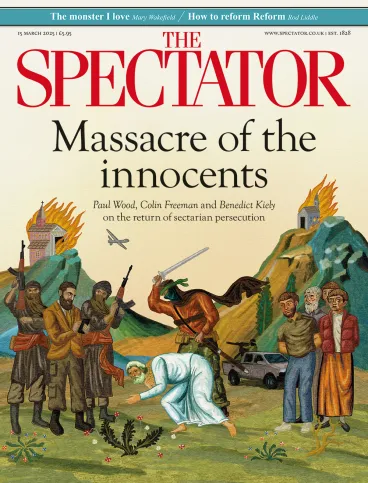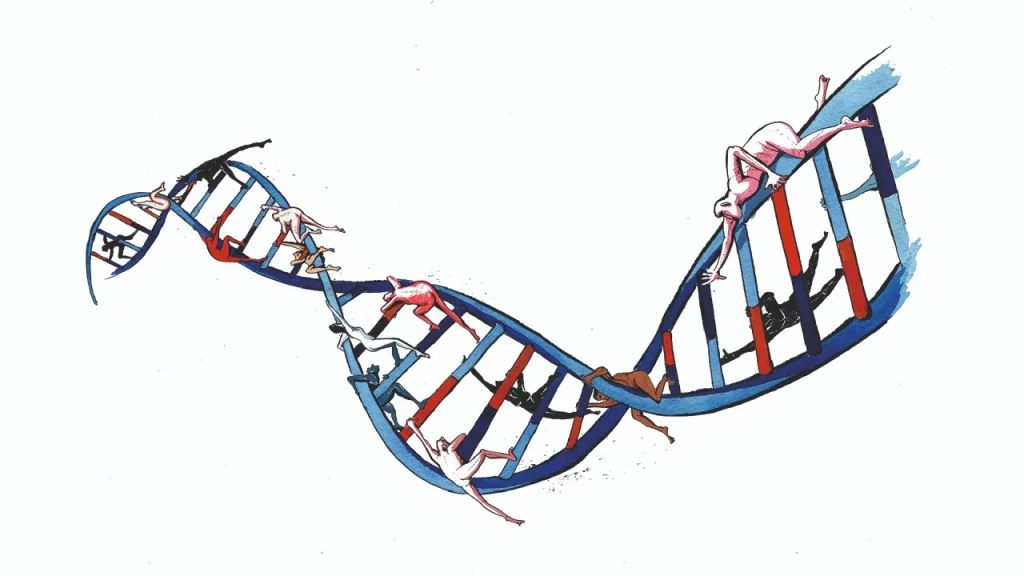
Stephen May used to write contemporary novels about men who ‘live outside big cities, lack self-confidence and rarely feature in contemporary fiction’, as he once put it, adding: ‘Even Nick Hornby’s characters are more sorted than mine.’ But a chance discovery of a Wikipedia page about the three weeks that a young Stalin spent in Edwardian London sent May’s imagination hurtling back through the decades.
The result was Sell Us the Rope (2022), his sixth novel, which imagined what Koba, the Georgian then better known as Joseph Dzhugashvili, got up to in 1907 while attending the Fifth Congress of the Russian Social Democratic Labour party. May mixed the real with the fictional to great acclaim. Hilary Mantel called him the ‘spry, sardonic voice of the new historical fiction’.
For Green Ink, May takes us back to London again, this time in 1920, and David Lloyd George, that great peacemaker, peerage-seller and philanderer, is prime minister. We meet him in flagrante at Chequers, in a draughty bedroom, muttering threats to his Honourable Member. ‘I was cajoling Mr Pidyn, the MP for my own girl. I was telling him to behave, to rise, to do the right thing,’ he tells Frances Stevenson, who is much more than merely his mistress. As the first female private secretary to a prime minister, she is the most powerful woman in Downing Street. ‘She helps shape the whole damn world,’ writes May, via an omniscient third-person narrator who remains unnamed until the epilogue.
Lloyd George, Stevenson’s ‘Welsh bull’, is distracted by ‘this political fund debacle’, as he regards the cash for honours scandal. He is worried that a former socialist MP-turned-rabble-rouser called Victor Grayson is about to expose his involvement in selling OBEs and the like. The action, which unfolds at pace over the following 24 hours, revolves around how to stop Grayson – a cash-strapped, bisexual hedonist who really did vanish one night in September 1920, prompting speculation that he was murdered by the British government. Given that May starts the narrative with a short prologue in which a man has been shot in the stomach, things aren’t looking good for Grayson.
As with Sell Us the Rope, May’s protagonists are a mix of real and imaginary people. There is the colourful, resourceful Babs, a suffragist, socialist and anarchist, who went by the name of Barbara before being liberated, economically and sexually, by the Great War. And there is Hardit Joshi, a former Jeeves to His Highness the Maharajah of Barwani’s Wooster, who drove ambulances on the Western Front. The pair first appear in Grayson’s suspiciously well-appointed rooms in St James’s, the morning after the night before. ‘I can’t pay for it. For the sex, I mean,’ Grayson clarifies, when Babs suggests ‘another go-round’.
Green ink was once the colour of choice for irate periodical readers. It is also the colour used by the secret serviceman forced to eavesdrop on Lloyd George and Stevenson for the benefit of his C Division boss, Sir Basil Thomson, a part-time novelist, erstwhile colonial ruler of Fiji and Tonga, former prison governor and the man really pulling the strings in this crisply written saga. The letter telling Grayson that his feedback about his associates on the revolutionary left is no longer required is also written in green ink.
The novel underscores how May has found his forte speculating on the ‘what ifs’ of history. That he imbues his story with a rallying call for feminism and neatly solves the mystery surrounding the narrator only further increases my admiration for this very fine and fun novel. And, yes, ‘pidyn’ is a real Welsh word.








Comments